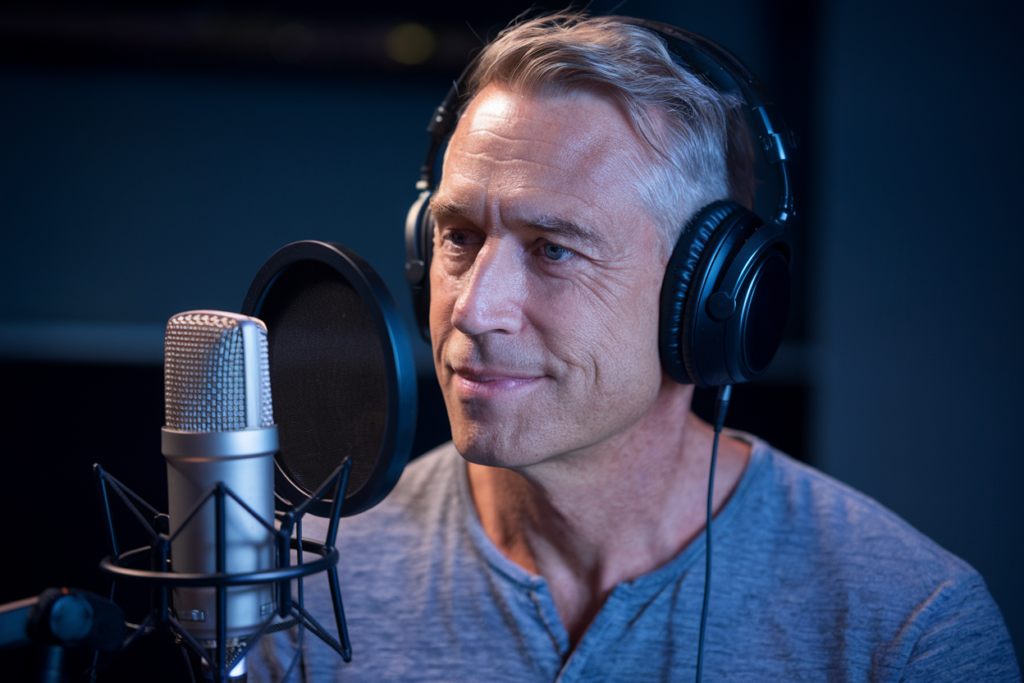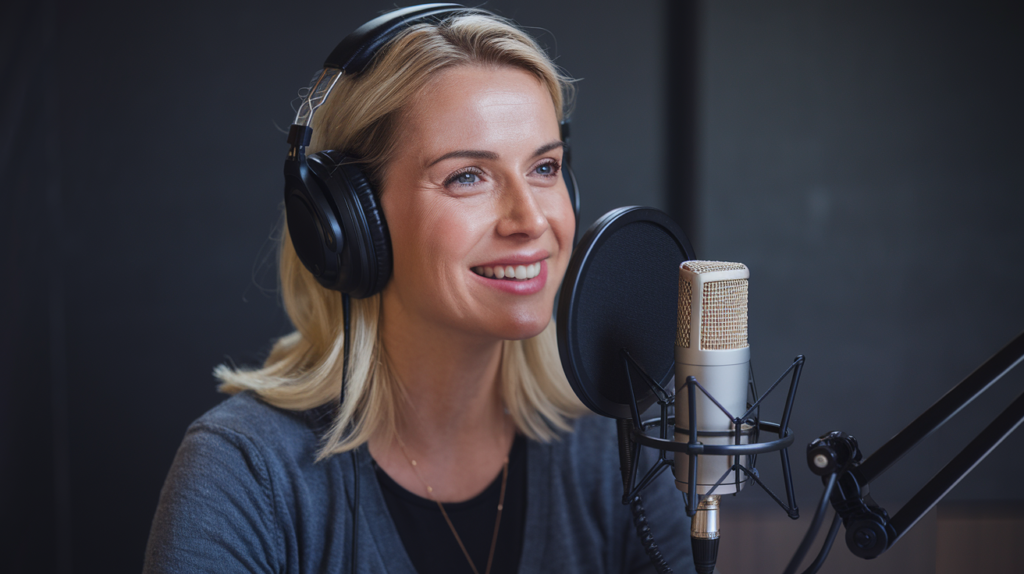Recording American voiceovers can seem straightforward, but it comes with its own set of unique challenges. From regional accents to technical issues, navigating this landscape requires both skill and adaptability. Whether you’re a seasoned professional or just starting out, understanding these hurdles is key to delivering high-quality recordings that resonate with your audience.
One significant challenge is capturing the right tone and emotion for various projects. Each script demands a different approach, and striking the perfect balance can be tricky. Additionally, environmental factors like background noise and equipment limitations can hinder your recording process. By recognizing these obstacles, you can better prepare yourself for success in the competitive world of voiceover work.
Key Takeaways
- Understanding Regional Accents: Recognizing the significance of regional variations in American accents is essential for selecting the right voice talent and ensuring effective communication.
- Emotional Delivery Matters: The ability to convey appropriate emotions is crucial; skilled voice actors can adapt their tone to enhance storytelling, whether it’s excitement or sincerity.
- Technical Challenges Exist: Be prepared for potential technical issues such as equipment malfunctions and software settings that can disrupt recording quality.
- Environmental Factors Influence Quality: Selecting a quiet, acoustically treated recording space minimizes background noise, greatly improving audio clarity.
- Studio Setup Is Key: Investing in high-quality microphones and soundproofing solutions ensures a professional standard for voiceover recordings.
- Collaboration Enhances Results: Working with industry experts like sound engineers and directors can significantly improve the overall quality of your voiceover projects.
Overview of American Voiceovers
American voiceovers play a crucial role in various media, including commercials, films, and video games. Understanding the nuances of this field helps you appreciate what makes a successful voiceover project.
Regional accents present one key aspect of American voiceovers. Different areas across the United States have unique dialects that can influence how your message is received. When choosing voice talent, consider their ability to adapt to specific regional sounds or maintain neutrality as required.
Tone and emotion significantly impact the effectiveness of your recording. Selecting a voice artist with the right vocal qualities ensures that your project resonates with your target audience. Skilled voice actors can convey varying emotions—whether it’s excitement for an advertisement or sincerity for a documentary.
Technical aspects also affect the quality of American voiceovers. Environmental factors like background noise and equipment limitations may hinder recordings. Ensuring optimal recording conditions allows you to focus on selecting suitable voice over talent who can deliver high-quality performances consistently.
Navigating American voiceovers involves understanding regional variations, emotional delivery, and technical requirements. This knowledge equips you to collaborate effectively with professionals in the industry and achieve outstanding results for your projects.
Common Challenges in Recording American Voiceovers
Recording American voiceovers presents several challenges that can affect the quality of your project. Understanding these hurdles helps you select the right voice artist and ensure a successful recording session.
Technical Issues
Technical issues often arise during voiceover sessions, impacting sound quality and delivery. Equipment malfunction, such as microphone problems or audio interface failures, can disrupt recordings. Choosing high-quality equipment is essential to minimize these risks. Additionally, improper settings on recording software may lead to distorted sound or inadequate volume levels. Regular testing of gear before sessions ensures everything functions correctly, allowing voice actors to focus on delivering their best performance.
Environmental Factors
Environmental factors significantly influence the recording process for American voiceovers. Background noise from traffic, appliances, or even electronic devices can interfere with audio clarity. Selecting an appropriate recording space—preferably quiet and acoustically treated—reduces unwanted sounds. You might also consider using soundproofing materials like foam panels or carpets to enhance audio quality further. Identifying and addressing potential environmental distractions creates an optimal setting for your chosen voice talent to shine during recordings.
Vocal Performance Challenges
Recording American voiceovers presents vocal performance challenges that require skill and adaptability. Understanding these challenges enhances the effectiveness of your projects.
Accent and Dialect Variations
Accent and dialect variations pose significant hurdles in voiceover work. Different regions across the U.S. have distinct accents, which can affect how your message resonates with audiences. Selecting a voice talent who can adapt to specific dialects ensures authenticity in delivery. Additionally, some projects demand a neutral accent to appeal to broader audiences. Evaluating voice artists for their ability to switch between accents or maintain neutrality is crucial for achieving desired outcomes.
Emotional Delivery
Emotional delivery plays an essential role in effective voiceovers. Voice actors must convey appropriate emotions aligned with project goals, whether it’s excitement for a commercial or sincerity for a documentary. The right emotional tone engages listeners and enhances storytelling impact. Providing clear direction on emotional expectations during recordings helps ensure that the final product aligns with your vision. Skilled voice over talent understands nuances in emotion, making them invaluable assets in creating compelling audio content.
Studio and Equipment Considerations
Recording American voiceovers demands attention to studio setup and equipment quality. A well-designed recording environment enhances sound clarity, ensuring the final product meets professional standards.
Soundproofing Solutions
Soundproofing is essential for achieving high-quality voiceovers. You can utilize materials like acoustic panels and bass traps to absorb unwanted noise. Sealing gaps around windows and doors prevents external sounds from interfering with your recordings. Additionally, consider using a vocal booth or portable isolation shields to create an optimal space for voice talent, allowing them to deliver clear performances without distractions.
Equipment Quality
Selecting top-notch equipment significantly impacts the recording process. Invest in high-quality microphones tailored for voiceover applications, as they capture nuances in tone and emotion effectively. An audio interface with low latency improves sound processing, enhancing real-time monitoring during sessions. Regularly check cables and connectors to avoid disruptions due to malfunctions. By maintaining a focus on studio specifications and equipment quality, you ensure that your recordings stand out for their professionalism and clarity in various media projects.
Professional Tips for Overcoming Challenges
Navigating the complexities of recording American voiceovers requires strategic approaches to ensure high-quality results. Here are some professional tips to help you overcome common challenges in this field.
Preparation and Practice
Preparation plays a crucial role in achieving effective voiceovers. Familiarize yourself with the script and understand its nuances, including tone and intent. Practicing different accents or emotional deliveries enhances versatility as a voice actor, allowing you to adapt easily during recording sessions. Conducting test runs helps identify potential issues related to pacing or pronunciation before the actual session begins. Regularly practicing vocal exercises also strengthens your voice, improving clarity and expression during recordings.
Collaborating with Experts
Collaboration with industry experts significantly improves your output quality. Engaging sound engineers ensures optimal audio settings that enhance sound clarity while minimizing technical issues. Voiceover directors provide valuable feedback on performance aspects like emotion and inflection, ensuring alignment with project goals. Working closely with producers helps clarify expectations and vision for the final product, leading to more successful outcomes. Leveraging expertise from other professionals fosters an environment conducive to creativity and excellence in voiceover projects.
Conclusion
Recording American voiceovers comes with its fair share of challenges. By understanding regional accents and technical hurdles you can navigate this complex landscape more effectively. Emphasizing preparation and collaboration will not only enhance your skills but also improve the final product.
Investing in high-quality equipment and optimizing your recording environment goes a long way in achieving professional results. Remember to focus on emotional delivery and adapt to project needs, ensuring that you resonate with diverse audiences.
With dedication and the right approach you’ll overcome obstacles and excel in the voiceover industry.
Frequently Asked Questions
What are the main challenges of recording American voiceovers?
Recording American voiceovers involves navigating regional accents, technical issues, and environmental factors. Voice talent must adapt to specific dialects or maintain neutrality while conveying the right tone and emotion for various projects. Additionally, equipment quality and recording conditions can significantly impact sound clarity.
Why is it important to select the right voice talent for a project?
Selecting appropriate voice talent is crucial because different projects may require specific accents or a neutral tone to reach broader audiences. The right voice actor enhances authenticity and emotional delivery, ensuring that the final product aligns with the project’s goals.
How can technical issues affect voiceover recordings?
Technical issues like microphone malfunctions, audio interface failures, or improper software settings can disrupt recordings. These problems may lead to distorted sound or inadequate volume levels, making it essential to use high-quality equipment and conduct regular gear testing before sessions.
What role does studio setup play in achieving quality voiceovers?
A well-designed studio setup significantly impacts sound quality. Effective soundproofing solutions like acoustic panels can reduce background noise, while investing in high-quality microphones and audio interfaces helps capture nuanced vocal performances essential for professional-grade recordings.
How can voice actors improve their performance during recording sessions?
Voice actors can enhance their performance by thoroughly familiarizing themselves with the script and practicing different accents or emotional deliveries beforehand. Conducting test runs allows them to identify potential issues early on, leading to better results during actual sessions.
What tips can help overcome common difficulties in voiceover work?
Preparation is key; practice scripts regularly and collaborate with industry experts such as sound engineers for optimal outcomes. Maintaining focus on clear emotional direction during recordings ensures alignment with project objectives and improves overall output quality.






